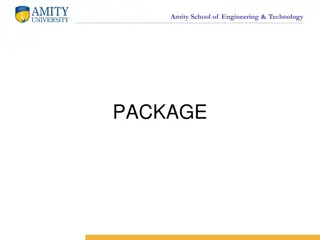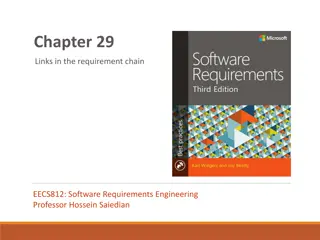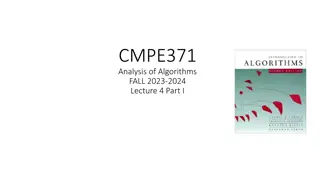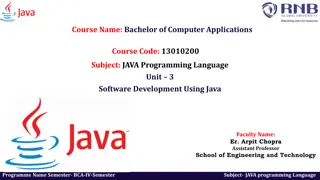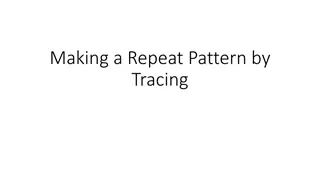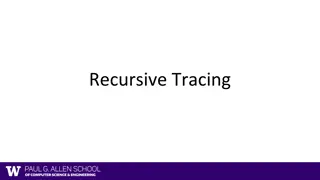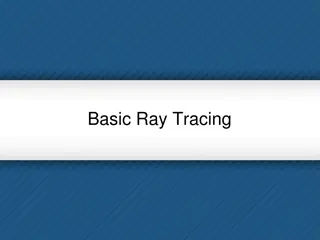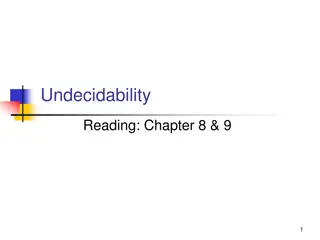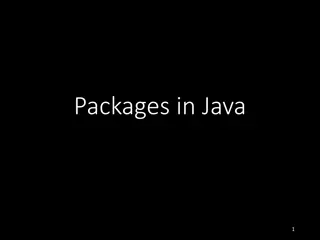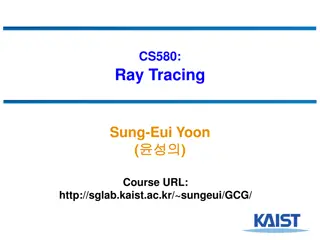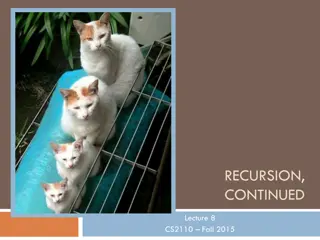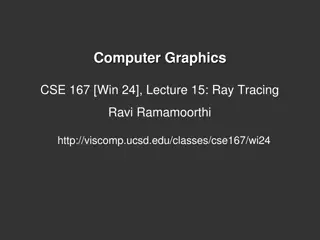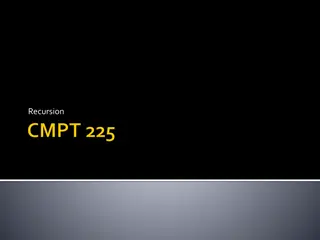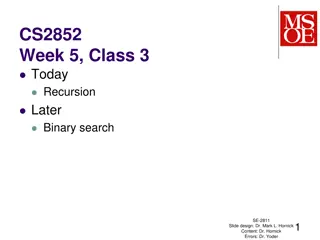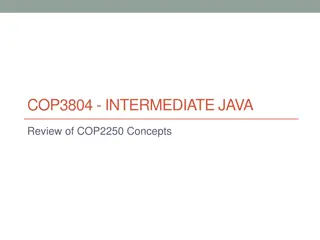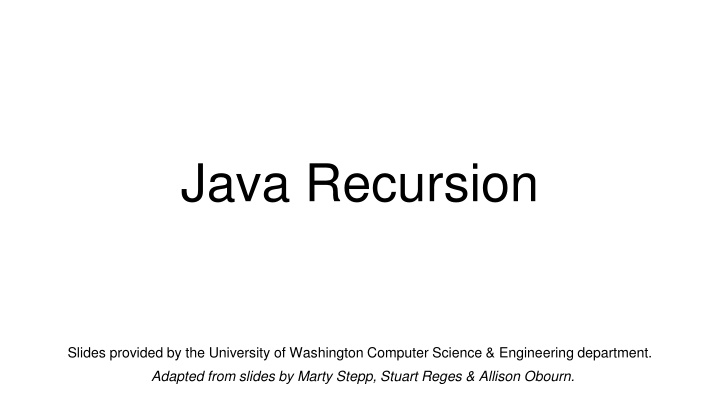
Java Recursion: Fundamentals and Examples
Delve into the world of Java recursion with this comprehensive guide adapted from University of Washington's Computer Science & Engineering department slides. Learn the definition of recursion, recursive programming, recursive cases, solving problems recursively, and see practical Java recursion examples. Explore the essence of base cases and recursive cases, along with recursive tracing in Java to deepen your understanding of this powerful programming concept.
Download Presentation

Please find below an Image/Link to download the presentation.
The content on the website is provided AS IS for your information and personal use only. It may not be sold, licensed, or shared on other websites without obtaining consent from the author. If you encounter any issues during the download, it is possible that the publisher has removed the file from their server.
You are allowed to download the files provided on this website for personal or commercial use, subject to the condition that they are used lawfully. All files are the property of their respective owners.
The content on the website is provided AS IS for your information and personal use only. It may not be sold, licensed, or shared on other websites without obtaining consent from the author.
E N D
Presentation Transcript
Java Recursion Slides provided by the University of Washington Computer Science & Engineering department. Adapted from slides by Marty Stepp, Stuart Reges & Allison Obourn.
Recursion - recursion: The definition of an operation in terms of itself - Solving a problem using recursion depends on solving smaller occurrences of the same problem. - recursive programming: Writing methods that call themselves to solve problems recursively - An equally powerful substitute for iteration (like for- loops) - Particularly well-suited for solving certain types of problems
Recursion and cases - Every recursive algorithm involves at least 2 cases: - base case: A simple occurrence that can be answered directly - recursive case: A more complex occurrence of the problem that cannot be directly answered, but can instead be described in terms of smaller occurrences of the same problem - Some recursive algorithms have more than one base or recursive case, but all have at least one of each. - A crucial part of recursive programming is identifying these
Recursion in Java - Consider the following method to print a line of * characters: // Prints a line containing the given number of stars. // Precondition: n >= 0 public static void printStars(int n) { for (int i = 0; i < n; i++) { System.out.print("*"); } System.out.println(); // end the line of output } - Write a recursive version of this method that calls itself. - Solve the problem without using any loops. - Hint: your solution should print just one star at a time.
Recursion in Java - Our recursive solution is split into two cases: - base case: print 0 stars - recursive case: print more than 0 stars - In Java: public static void printStars(int n) { if (n == 0) { // base case; just end the line of output System.out.println(); } else { // recursive case; print one zero stars System.out.print("*"); printStars(n - 1); }
Recursive tracing - Consider the following recursive method: public static int mystery(int n) { if (n < 10) { return n; } else { int a = n / 10; int b = n % 10; return mystery(a + b); } } - What is the result of the following call? mystery(648)
A recursive trace mystery(648): - int a = 648 / 10; // 64 - int b = 648 % 10; // 8 mystery(72): - return mystery(a + b); // mystery(72) - int a = 72 / 10; // 7 - int b = 72 % 10; // 2 - return mystery(a + b); // mystery(9) mystery(9): - return 9;
Recursive tracing 2 - Consider the following recursive method: public static int mystery(int n) { if (n < 10) { return (10 * n) + n; } else { int a = mystery(n / 10); int b = mystery(n % 10); return (100 * a) + b; } } - What is the result of the following call? mystery(348)
A recursive trace 2 mystery(348): - int a = mystery(34); - int a = mystery(3); - return (10 * 3) + 3; // 33 - int b = mystery(4); - return (10 * 4) + 4; // 44 - return (100 * 33) + 44; // 3344 - int b = mystery(8);

